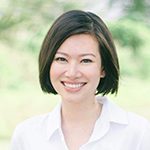SUMMARY
This is AI generated summarization, which may have errors. For context, always refer to the full article.
![[OPINION] We are not a polarized nation](https://www.rappler.com/tachyon/r3-assets/612F469A6EA84F6BAE882D2B94A4B421/img/495E01D0A1294AB881EDB1F8D4C35840/not-polarized-nation-20180209-3.jpg)

There are many reasons to think we are a divided nation. Dutertards versus Dilawan, Thinking Pinoy versus Pinoy Ako, the majority versus the silent majority – these are some of the ways we categorize social divisions today.
The labels are both convenient and disturbing. They are convenient, because they provide cognitive shortcuts by telling us which blogs to avoid, and which friends to hide in our newsfeeds.
They are disturbing, however, because these labels obscure the complexity of people’s views today.
I have come to this realization after 4 months of the Duterte Reader conversation series.
The Duterte Reader is a collection of essays on President Rodrigo Duterte’s early presidency, published last September by the Ateneo de Manila University Press. As the book’s editor, I had the privilege of attending 14 book launches in the Philippines, the United States, Japan, Singapore, and Australia.
In each of these events, I, together with some of the book’s contributors, had the chance to talk to students, university professors, senior high school teachers, OFWs, call center agents, public servants, and young entrepreneurs about their views on the Duterte administration.
There were many surprises in these conversations. It was the range of views – many of which could not be boxed into the pro- or anti-Duterte – that struck me the most.
In the last leg of the conversation series, I met students from Mindanao State University in Iligan who found the President’s language disturbing. They were concerned that his demeanor was a poor representation of Bisaya identity. The same students, however, appreciated having the first Mindanaoan president in Malacañang after the long rule of Imperial Manila.
There were others who found the President’s language less disturbing than his disregard for Lumad voices in current debates on peace and federalism.
Overseas, I engaged in discussions with members of the DDS (Digong Duterte Supporters). In public forums, they explained the hypocrisies of the human rights discourse, the failures of the EDSA regime, and how President Duterte restored their esteem as Filipinos working overseas.
This, however, did not mean their support for the President was unqualified. There were many who expressed concern that the promised reforms have not come fast enough, or that Duterte seemed to be cozying up to the same traditional politicians who stole from the nation.
These are anecdotal evidence, but they offer some lessons about the character of public conversations today.
First, I realized that the extreme division we often talk about is more imagined than real. Our political conversations are not limited to two poles. A good amount of the discourse happens in between. Weighing, reflecting, and negotiating are very much part of citizens’ assessments of the regime. We need to curate spaces where these considerations can be articulated.
Second, there is value in resisting the temptation to presuppose what others think. While the architecture of social media is designed to appeal to our instincts, we can foster a counter-culture of asking questions, instead of rendering unconsidered judgments. Asking “what do you mean” or “can you explain” instead of hitting the unfollow button can create opportunities for further conversation. This, of course, requires patience and an open mind.
Third, I find that having different political views does not necessarily get in the way of wanting the same things. I learned this lesson from DDS Canberra, who, despite our political differences, did not hesitate to collaborate with a fund-raising project for displaced communities in Marawi.
My colleagues refer to this as meta-consensus – recognition of the legitimate range of views and disputed value. We don’t need to agree, but we can work together.
Finally, it is important to reflect on who exactly benefits from creating artificial political divisions. Someone stands to gain from cultivating the impression that our only options are DDS or dilawan. Someone stands to gain when we get the impression that talking politics can only be toxic and therefore withdrawal is our best option.
It would be a shame for the nation to fall into this trap. There are many other of better ideas out there. – Rappler.com
Nicole Curato (@NicoleCurato) is a sociologist. She is a Senior Research Fellow at the Centre for Deliberative Democracy and Global Governance in Canberra.
Add a comment
How does this make you feel?
There are no comments yet. Add your comment to start the conversation.